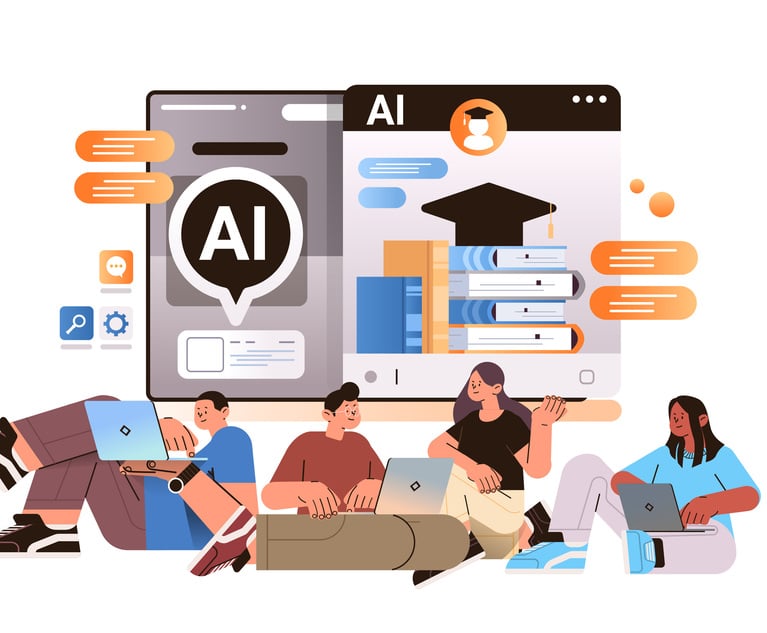What To Know About Student Loan Relief In the Coronavirus Aid Package
Derek Brainard, the director of financial education at AccessLex Institute, unpacks the student loan relief provisions within the $2 trillion coronavirus stimulus package and how lawyers borrowers should proceed.
April 01, 2020 at 03:16 PM
6 minute read
The original version of this story was published on Law.com
 Photo: BrianAJackson/iStockphoto.
Photo: BrianAJackson/iStockphoto.
Tucked into the $2 trillion coronavirus relief package signed into law last week are several provisions meant to help student loan borrowers weather the pandemic.
 Derek Brainard.
Derek Brainard.The Coronavirus Aid, Relief and Economic Security Act (CARES) suspends payments and interest on federal students loans for six months, alongside other relief measures. The legislation has implications for all federal loan borrows, particularly those seeking loan forgiveness through income-based repayment plans or the Public Service Loan Forgiveness Program.
Law.com's Karen Sloan spoke with Derek Brainard, the director of financial education at nonprofit legal education advocacy organization AccessLex Institute, to discuss what lawyers with student loans need to know about the relief. His answers have been edited for length and clarity.
Karen Sloan: What does this bill do about student loans, in a nutshell?
Derek Brainard: Previously, the executive actions by the president established the 0% interest for all federal loans. What the CARES Act did was make those executive actions law and extended them for six months. These relief measures are set to end, pending further actions, Sept. 30. The big two relief measures that generally apply to all federal student loan borrowers are the 0% interest, and the zero-dollar payments for six months. It's a suspension of payments, which is different from a forbearance. A suspension means the loans will still be considered to be "in repayment" and in good standing. In a forbearance you aren't technically in repayment. People first have to understand what loans they have that qualify and which don't.
What does this mean for Public Service Loan Forgiveness program, which requires borrower to make 10 years of payments before their debt can be forgiven?
That's one of the great things about this bill—the CARES Act makes sure that folks pursuing forgiveness both under the regular income-driven repayment plans as well as the Public Service Loan Forgiveness plan can kind of have their cake and eat it, too. They are not required to make payments, but those suspended payments still count toward the forgiveness in those programs.
So there's not an extra six months tacked on to your 10, 20 or 25 years of repayment if you want your balance to be forgiven?
No. That's one of the really great additions to the relief that this bill brought about. Previously, when it was an automatic forbearance, you had to call your servicer and say, "Hey, I need a forbearance." And they would say, "Yes, here you go." The CARES Act has expanded it to say that you don't have to call your loan servicer, [the suspended payments are] going to automatically start. And, if your payments are suspended, they will still count toward the 120 payments for public service loan forgiveness. And they will count toward the forgiveness that's built into the income—based repayment plans themselves, where forgiveness comes after 20 or 25 years of making payments. In that way, it's very helpful, and it gives people using those plans the peace of mind that even though they are not making payments, they don't have any interest accruing and those suspended monthly payments are still counting toward their loan forgiveness.
Let's say I haven't been financially affected by the pandemic, can I and should I still make my regular student loans payments?
The bill impacts three different categories of borrowers in different ways. The first category of borrower is in default. They've gone more than 270 days without making a payment on their student loans. What this bill does is suspend wage garnishment, tax refund seizures, Social Security seizures—it suspends all of that for people in default and gives them the opportunity to financially reset.
For the second group, who are using income-driven repayment plans or are pursuing public service loan forgiveness, their goal is to minimize their payments so they can maximize their forgiveness. This gives them the ability to pause their payments while still achieving that goal.
For the third group you just mentioned—folks who don't have that income uncertainty and haven't been as impacted financially as others—if they have the ability to continue to make payments, they can absolutely do so. In fact, what this measure does is help them boost their progress toward paying off their loans on time or early because all their loans will be at 0% interest. All of their payments [for the six-month suspension period] goes toward their principal, which is a huge boost if you are trying to get out of debt early.
But people have to be proactive about making payments for this six-month period, right?
Correct. The Department of Education should be communicating within in the next few weeks about how they can do that, because everyone will be automatically suspended. If you want to elect to continue to make payments, there will be communications put out to borrowers on how to do that by mid-April. You can also be calling or contacting your servicer to make sure you are doing it the way they want on their payment portal.
I saw a provision that employers can make student loan payments for employees. Tell me about that.
This is one of the provisions that has not been talked about as much. Through Dec. 31, your employer can pay up to $5,250 of your student loans, tax-free. That's about as much as I know. That's a great thing, but the reality of the situation is that many employers are feeling the economic fallout of this pandemic. If they are in a position to do so, that's obviously a great benefit to you.
Not to belabor the point, but this legislation applies only to federal student loans, right?
Right. There are a lot of people who are potentially going to have loans that don't qualify for this relief. Qualifying loans are federal direct loans and federally held FFEL loans. The loans that don't qualify are commercially held FFEL loans, Perkins Loans and private student loans. For borrowers with FFEL loans and Perkins Loans, one option they have is to consolidate via direct consolidation loans to make them eligible for this relief. But they need to consider the long-term implications of that. If they do use that direct consolidation loan, then once this suspension is lifted they might actually have a higher interest rate than before they consolidated. I think that might be a temptation for people. It might be right for some and not for others.
Many people have private loans. They should be contacting their private loan lenders to see what relief measures they have. Private lenders may offer forbearance and deferment options to help people if they can.
NOT FOR REPRINT
© 2025 ALM Global, LLC, All Rights Reserved. Request academic re-use from www.copyright.com. All other uses, submit a request to [email protected]. For more information visit Asset & Logo Licensing.
You Might Like
View All
LSAT Administrator Sues to Block AI Tutor From Using ‘Famous, Distinctive’ Test Prep Materials
3 minute read
Some Elite Universities Favor Wealthy Students in Admissions Decisions, Lawsuit Alleges
5 minute read
How Uncertainty in College Athletics Compensation Could Drive Lawsuits in 2025
Trending Stories
- 1'It's Not Going to Be Pretty': PayPal, Capital One Face Novel Class Actions Over 'Poaching' Commissions Owed Influencers
- 211th Circuit Rejects Trump's Emergency Request as DOJ Prepares to Release Special Counsel's Final Report
- 3Supreme Court Takes Up Challenge to ACA Task Force
- 4'Tragedy of Unspeakable Proportions:' Could Edison, DWP, Face Lawsuits Over LA Wildfires?
- 5Meta Pulls Plug on DEI Programs
Who Got The Work
Michael G. Bongiorno, Andrew Scott Dulberg and Elizabeth E. Driscoll from Wilmer Cutler Pickering Hale and Dorr have stepped in to represent Symbotic Inc., an A.I.-enabled technology platform that focuses on increasing supply chain efficiency, and other defendants in a pending shareholder derivative lawsuit. The case, filed Oct. 2 in Massachusetts District Court by the Brown Law Firm on behalf of Stephen Austen, accuses certain officers and directors of misleading investors in regard to Symbotic's potential for margin growth by failing to disclose that the company was not equipped to timely deploy its systems or manage expenses through project delays. The case, assigned to U.S. District Judge Nathaniel M. Gorton, is 1:24-cv-12522, Austen v. Cohen et al.
Who Got The Work
Edmund Polubinski and Marie Killmond of Davis Polk & Wardwell have entered appearances for data platform software development company MongoDB and other defendants in a pending shareholder derivative lawsuit. The action, filed Oct. 7 in New York Southern District Court by the Brown Law Firm, accuses the company's directors and/or officers of falsely expressing confidence in the company’s restructuring of its sales incentive plan and downplaying the severity of decreases in its upfront commitments. The case is 1:24-cv-07594, Roy v. Ittycheria et al.
Who Got The Work
Amy O. Bruchs and Kurt F. Ellison of Michael Best & Friedrich have entered appearances for Epic Systems Corp. in a pending employment discrimination lawsuit. The suit was filed Sept. 7 in Wisconsin Western District Court by Levine Eisberner LLC and Siri & Glimstad on behalf of a project manager who claims that he was wrongfully terminated after applying for a religious exemption to the defendant's COVID-19 vaccine mandate. The case, assigned to U.S. Magistrate Judge Anita Marie Boor, is 3:24-cv-00630, Secker, Nathan v. Epic Systems Corporation.
Who Got The Work
David X. Sullivan, Thomas J. Finn and Gregory A. Hall from McCarter & English have entered appearances for Sunrun Installation Services in a pending civil rights lawsuit. The complaint was filed Sept. 4 in Connecticut District Court by attorney Robert M. Berke on behalf of former employee George Edward Steins, who was arrested and charged with employing an unregistered home improvement salesperson. The complaint alleges that had Sunrun informed the Connecticut Department of Consumer Protection that the plaintiff's employment had ended in 2017 and that he no longer held Sunrun's home improvement contractor license, he would not have been hit with charges, which were dismissed in May 2024. The case, assigned to U.S. District Judge Jeffrey A. Meyer, is 3:24-cv-01423, Steins v. Sunrun, Inc. et al.
Who Got The Work
Greenberg Traurig shareholder Joshua L. Raskin has entered an appearance for boohoo.com UK Ltd. in a pending patent infringement lawsuit. The suit, filed Sept. 3 in Texas Eastern District Court by Rozier Hardt McDonough on behalf of Alto Dynamics, asserts five patents related to an online shopping platform. The case, assigned to U.S. District Judge Rodney Gilstrap, is 2:24-cv-00719, Alto Dynamics, LLC v. boohoo.com UK Limited.
Featured Firms
Law Offices of Gary Martin Hays & Associates, P.C.
(470) 294-1674
Law Offices of Mark E. Salomone
(857) 444-6468
Smith & Hassler
(713) 739-1250







